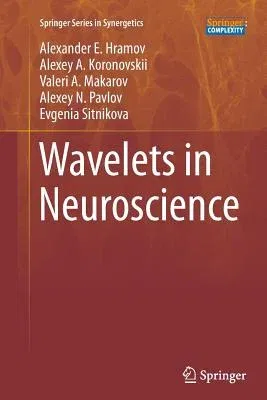Alexander E Hramov
(Author)Wavelets in Neuroscience (Softcover Reprint of the Original 1st 2015)Paperback - Softcover Reprint of the Original 1st 2015, 23 August 2016

Qty
1
Turbo
Ships in 2 - 3 days
In Stock
Free Delivery
Cash on Delivery
15 Days
Free Returns
Secure Checkout

Part of Series
Springer Synergetics
Part of Series
Springer Series in Synergetics
Print Length
318 pages
Language
English
Publisher
Springer
Date Published
23 Aug 2016
ISBN-10
3662510782
ISBN-13
9783662510780
Description
Product Details
Book Edition:
Softcover Reprint of the Original 1st 2015
Book Format:
Paperback
Country of Origin:
NL
Date Published:
23 August 2016
Dimensions:
23.39 x
15.6 x
1.78 cm
Genre:
Science/Technology Aspects
ISBN-10:
3662510782
ISBN-13:
9783662510780
Language:
English
Location:
Berlin, Heidelberg
Pages:
318
Publisher:
Weight:
471.74 gm